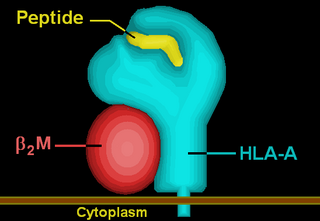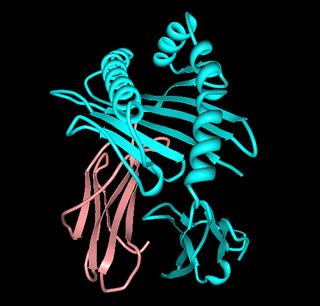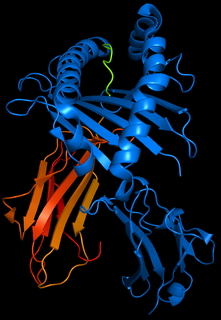HLA-A10 is a broad antigen HLA-A serotype. The ancestral A10 type is believed to be A*2601, which via gene conversion with other HLA-A alleles produced A*2501, A*3401, A*4301 and A*6601. A10 serotypes in general show a pattern of more recent expansion. A34 is an excellent example, appearing to have expanded from the middle east, with linkage disequilibrium with B alleles into Austronesia, South Pacific, Philippines and as far north as Taiwan. A*66 appears to have expanded from North Africa into the Middle East or Europe and A26 appears to have expanded Black Sea and, after the initial settlement from the southern West Pacific Rim peoples, into Japan. Whether this is a secondary migration from Africa or a re-expansion from within Eurasia is unclear.

HLA-A9 (A9) is a broad antigen HLA-A serotype that recognized the HLA-A23 and HLA-A24 serotypes. A*2402 appears to have evolved from A*23 alleles by a process of gene conversion. The A23 is more common in Africa and regions proximal to Africa. A24 is at very high frequencies in Austronesia and certain indigenous peoples of the Arctic, North America, South America and West Pacific Rim. While it is common over most of Eurasia, it is found at low abundance in NW Europe. A24 appears to have been carried by the first colonizers of South Eastern Asia.

HLA-A80 (A80) is a human leukocyte antigen serotype within HLA-A serotype group. The serotype is determined by the antibody recognition of α80 subset of HLA-A α-chains. For A80, the alpha "A" chain are encoded by the HLA-A*80 allele group and the β-chain are encoded by B2M locus. This group currently is dominated by A*8001. A80 and A*80 are almost synonymous in meaning.

HLA-A69 (A69) is a human leukocyte antigen serotype within HLA-A serotype group. The serotype is determined by the antibody recognition of α69 subset of HLA-A α-chains. For A69, the alpha "A" chain are encoded by the HLA-A*69 allele group and the β-chain are encoded by B2M locus. This group currently is dominated by A*6901. A69 and A*69 are almost synonymous in meaning. A69 is a split antigen of the broad antigen serotype A28. A69 is a sister serotype of A68.

HLA-A68 (A68) is a human leukocyte antigen serotype within HLA-A serotype group. The serotype is determined by the antibody recognition of α68 subset of HLA-A α-chains. For A68, the alpha "A" chain are encoded by the HLA-A*68 allele group and the β-chain are encoded by B2M locus. A68 and A*68 are almost synonymous in meaning. A68 is a split antigen of the broad antigen serotype A28. A68 is a sister serotype of A69.

HLA-A66 (A66) is a human leukocyte antigen serotype within HLA-A serotype group. The serotype is determined by the antibody recognition of α66 subset of HLA-A α-chains. For A66, the alpha "A" chain are encoded by the HLA-A*66 allele group and the β-chain are encoded by B2M locus. A66 and A*66 are almost synonymous in meaning. A66 is a split antigen of the broad antigen serotype A10. A66 is a sister serotype of A25, A26, A34, and A43.

HLA-A33 (A33) is a human leukocyte antigen serotype within HLA-A serotype group. The serotype is determined by the antibody recognition of α33 subset of HLA-A α-chains. For A33, the alpha "A" chain are encoded by the HLA-A*33 allele group and the β-chain are encoded by B2M locus. A33 and A*33 are almost synonymous in meaning. A33 is a split antigen of the broad antigen serotype A19. A33 is a sister serotype of A29, A30, A31, A32, and A74.

HLA-B*82 (B*82) is an HLA-B allele-group. There is no current useful serotyping for HLA-B*82 gene products. B*8201 was first identified by sequence analysis and appears to be derived by gene conversion between B*5602 and another HLA class I allele., later B*8202 was identified in a caucasian and was suggested to be ancestral to B*8201, as product between gene conversion of B*5602 allele and B*4501 allele. B*82 is more common in East Africa, Kenya and Sudan, the frequency of B*8201 is found in the peoples to the west, sporadically in Central and West Africa, B*8202 is found in Sudan and Saudi Arabia.

HLA-B81 (B81) is an HLA–B serotype. The serotype identifies the HLA-B*8101 and B*8102 gene products. B81 is more common in Subsaharan Africa. While there is a B81 serotype, serotyping of B81 is poor when simultaneously tested with anti-B7 or B48 antibodies.
HLA-B73 (B73) is an HLA-B serotype. The serotype identifies the HLA-B*7301 gene product. Part of B*7301 is similar to the HLA-B22 family, however part resembles the domains seen in other apes. B73 is more common in Western Indian Ocean, Mediterranean and Africa.
HLA-B67 (B67) is an HLA-B serotype. The serotype identifies the more common HLA-B*67 gene products. B67 is region specific recombinant haplotype formed by the gene conversion of B*39, an allele common along the Northwest Pacific Rim, and B7, B22, or B27.
HLA-B53 (B53) is an HLA-B serotype. The serotype identifies the more common HLA-B*53 gene products. The B53 sequence is identical to B35 but short sequence specifies a Bw4 rather than a Bw6 motif, indicating B53 is a recent product of gene conversion. This suggests an origin for HLA-B53 involving a gene conversion of HLA-B35 by an allele containing this Bw4 sequence.
HLA-B18 (B18) is an HLA-B serotype. The serotype identifies the more common HLA-B*18 gene products. B*1801, the most common allele is at highest frequencies in Northern Italy and the Balkans, a peak frequency distribution it shares with B*3501.
HLA-B55 (B55) is an HLA-B serotype. B55 is a split antigen from the B22 broad antigen, sister serotypes are B54 and B56. The serotype identifies the more common HLA-B*55 gene products.
HLA-B50 (B50) is an HLA-B serotype. B50 is a split antigen from the B21 broad antigen, the sister serotype B49. The serotype identifies the more common HLA-B*50 gene products.
HLA-B49 (B49) is an HLA-B serotype. B49 is a split antigen from the B21 broad antigen, the sister serotype B50. The serotype identifies the more common HLA-B*50 gene products.

HLA-B51 (B51) is an HLA-B serotype. The serotype identifies the more common HLA-B*51 gene products.

HLA-B52 (B52) is an HLA-B serotype. The serotype identifies the more common HLA-B*52 gene products.

HLA-B75 (B75) is an HLA-B serotype. The serotype identifies certain B*15 gene-allele protein products of HLA-B.

HLA-B70 (B70) is an HLA-B serotype. The serotype identifies certain B*15 gene-allele protein products of HLA-B. B70 is one of many split antigens of the broad antigen, B15.









